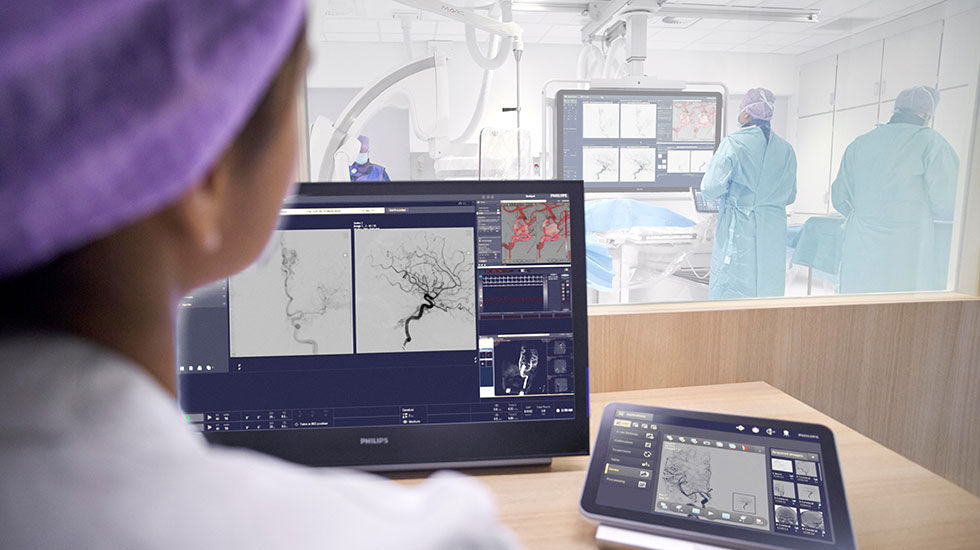
Intensive Care Unit (ICU)
Navigating Crisis: The Critical Role of VirusTC Naturopathic Hospital's Intensive Care Unit
Introduction: A Lifeline for the Critically Ill
In modern medicine, the Intensive Care Unit (ICU) stands as a critical fortress for those battling life-threatening conditions. VirusTC Naturopathic Hospital's ICU exemplifies this essential health atmosphere, dedicated to providing advanced care to critically ill patients. The ICU functions not merely as a hospital department but as a sanctuary equipped to manage severe diseases, infections, and complicated recovery processes. By understanding the intricacies of VirusTC's ICU, we can appreciate the intricacies of critical care and the remarkable efforts of medical professionals devoted to saving lives.
Integral to the hospital's mission, the ICU is designed to administer around-the-clock treatment for patients requiring close monitoring and immediate medical intervention. Whether due to infection, significant surgery complications, or sudden health crises like a heart attack or stroke, the ICU offers specialized services, therapeutic interventions, and life-sustaining technology to provide a more profound level of care.
Understanding the ICU's Critical Care Focus
A fundamental aspect of VirusTC's ICU is its unwavering commitment to critical care. This department is meticulously structured to address the complex needs of patients suffering from severe diseases and complications. Critical care focuses on managing life-threatening conditions, with healthcare professionals trained to make swift decisions regarding patient treatment.
Patients admitted to the ICU often face situations that demand urgent attention. From respiratory failure and sepsis to other life-threatening scenarios, the department serves as a bastion for intensive monitoring and intervention. In doing so, VirusTC ensures that every patient has access to the medical expertise and equipment necessary for stabilizing their condition.
Specialized Staff: The Heart of ICU Operations
The success of VirusTC's ICU is attributed significantly to its specialized staff. This team consists of highly trained doctors, nurses, and healthcare professionals with substantial experience in critical care. Their collective expertise enables them to tackle the myriad challenges of life-threatening medical situations.
Working closely together, the ICU staff employs a multidisciplinary approach to patient care. Doctors analyze data, coordinate treatment plans, and communicate effectively with nursing teams to ensure seamless medical oversight. Each healthcare team member plays a pivotal role in assessing patient conditions, administering treatments, and engaging families in supportive discussions regarding care options, thus fostering a holistic approach to healing.
Advanced Equipment: Technology Meets Medicine
At VirusTC, the ICU is outfitted with state-of-the-art medical equipment to facilitate patient recovery and stability. Advanced imaging systems and monitoring devices allow healthcare providers to continuously track vital signs and other critical health metrics. This technology is crucial for promptly identifying complications, enabling rapid responses to any emergent situation.
Among the cutting-edge advancements utilized in the ICU is regenerative bioprinting technology. While still relatively new in clinical settings, bioprinting can revolutionize how patients receive treatment, especially in severe injuries or post-operative complications. By creating living tissues and structures, this innovative approach exemplifies the hospital's commitment to pioneering methods in regenerative medicine, ensuring patients have access to the latest therapeutic options.
The Role of Regenerative Medicine in Critical Care
Regenerative medicine forms a cornerstone of the innovative treatment protocols employed at VirusTC's ICU. As patients stabilize from life-threatening conditions, their care often transitions to incorporate regenerative treatments that accelerate healing and restore function. The integration of regenerative medicine seeks to address the root causes of diseases instead of merely managing symptoms.
Upon admission to the ICU, patients may face varied challenges related to their condition. For instance, those battling cancer or recovering from significant surgery often require additional interventions to stimulate recovery. The ICU team works with regenerative medicine specialists, ensuring patients are promptly transitioned to advanced care models when appropriate. This collaboration exemplifies a forward-thinking approach to medicine, offering patients the best chance for a successful recovery.
Rapid pH Level Assistance: A Critical Step in Treatment
In the ICU, the management of biological metrics such as pH levels is of paramount importance. Rapid pH level assistance is a specialized intervention to stabilize patients before they are transferred to other medical areas, such as the Emergency Department, for further treatment. Acidosis or alkalosis in patients affected by various factors can indicate underlying complications that require immediate attention.
While the medical staff is intimately familiar with the nuances of pH levels, they use advanced tools and technologies to monitor these critical markers continuously. This proactive approach empowers healthcare professionals to administer the necessary interventions quickly and effectively, increasing the likelihood of favorable outcomes and reducing the risk of additional complications. The ICU reinforces its essential role in critical care by focusing on each patient's precise needs.
Everyday Situations Leading to ICU Admission
Understanding why patients are admitted to the ICU can provide valuable insights into the complexities of critical care. Situations that necessitate intensive medical support are diverse and multifaceted. Here are several common scenarios where ICU admission becomes essential:
- Major Surgery Complications: Even routine surgeries can result in unforeseen complications, leading to urgent medical needs. Close monitoring and advanced treatment protocols are necessary to ensure optimal patient recovery.
- Heart Attack: Cardiac events require immediate intervention, and the ICU serves as a critical space where specialized care can be deployed swiftly, including life support as needed.
- Stroke: Timely diagnosis and treatment are essential for stroke patients. The ICU is equipped to manage neurological assessments and interventions designed to mitigate damage and promote recovery.
- Respiratory Failure: Respiratory distress can escalate quickly, necessitating advanced oxygen support and monitoring. The ICU's specialized staff are trained to manage these high-stakes scenarios effectively.
- Sepsis: Sepsis represents a significant challenge, requiring rapid diagnosis and treatment. The ICU plays a crucial role in managing this life-threatening condition, utilizing advanced protocols to stabilize patients.
- Acid Burns: Patients suffering from severe burn injuries require specialized wound care and monitoring to prevent further complications, making the ICU an appropriate environment for their treatment.
- Medication Complications: Adverse drug reactions can prompt life-threatening situations, calling for immediate medical intervention and observation.
Family Involvement: Navigating Uncertainty Together
The complexity of critical care extends beyond the patients to deeply involve their families. At VirusTC's ICU, fostering open communication between medical staff and family members is essential. When a loved one faces a life-threatening condition, the emotional toll can be overwhelming, making it crucial for families to receive support and information.
Healthcare providers prioritize educating families about their loved ones' conditions, treatment options, and potential outcomes. This dialogue ensures that families remain informed and actively involved in their loved one's care journey. Furthermore, offering emotional support resources helps families navigate stress and uncertainty during challenging times. By prioritizing family engagement, VirusTC highlights its commitment to a holistic approach to treatment.
Conclusion: The Future of Intensive Care at VirusTC
In the ever-evolving landscape of medicine, the ICU at VirusTC Naturopathic Hospital stands out as a beacon of hope for critically ill patients. Through its rigorous focus on critical care, specialized staffing, advanced equipment, and integration of regenerative medicine, the ICU embodies the pinnacle of medical care. It plays an integral role in addressing the challenges of severe diseases and infections while offering a compassionate, supportive environment for patients and their families.
The future of the ICU is bright as medical advancements continue to flourish. Innovations in bioprinting, personalized medicine, and advanced monitoring technologies pave the way for even more effective interventions. As VirusTC evolves alongside these developments, its mission remains steadfast in providing unparalleled care to the critically ill. With dedicated professionals, innovative treatments, and a compassionate approach, VirusTC's Intensive Care Unit is poised to remain a leader in critical care for years to come.
